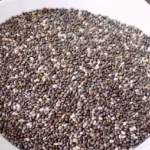16 Health Benefits of Ginger
You will be surprised to hear the benefits of ginger known as a spice
Health Benefits of Ginger, It cannot be that ginger is not available in the homes of Bengalis. Ginger is best known as a spice among Asians. But do we know all about the real properties of ginger? Although used as a flavor enhancer in curries, ginger has been used for centuries for its medicinal properties!
There are very few people who know the benefits and harms of ginger and take it. Rather, most people have come to know that ginger is just one ingredient among many cooking ingredients. But the health benefits of this little ingredient will make your head spin. So let’s try to know all about the benefits and harms of ginger from today’s discussion.
What are the benefits of ginger?
Various important facts have been known about the benefits of ginger through various studies. At this stage, 16 benefits of ginger are highlighted in stages.
Ginger cures indigestion
Indigestion means that food is not easily digested in the stomach, the symptoms of which are gas accumulation in the stomach, heartburn, discomfort, reluctance to eat, etc. Indigestion is usually caused by the slow release of food from the stomach. And the interesting thing is that the speed of this work of the stomach increases by eating ginger. (Leech, 2021)

Also, by eating ginger, the performance of the salivary glands of the mouth increases and the secretion of saliva increases. And salivary juice contains enzymes that aid in the digestion of sugars and fats. If you suffer from indigestion for a long time, you can make a habit of taking 1.2 grams of ginger or ginger powder before meals. By doing this, your indigestion problem will be removed and the stomach will be empty on time and ready to take food.
Ginger helps cure diarrhea
Diarrhea or food poisoning is a common health problem for which ginger can be used as a home remedy at the initial stage. In this case, the phytochemicals present in ginger will help cure diarrhea by eliminating stomach cramps and germs. In this regard, several studies have shown that ginger has an effective role in curing various stomach problems including diarrhea. (Villains, 2018)
How and how much to eat ginger to cure diarrhea?
The opinion of health experts in this regard is that 0.5 grams of raw ginger should be consumed directly or by making ginger water. If the diarrhea does not decrease after one meal, then the dosage should be increased to 1 gram. However, if there is lack of water in the body due to diarrhea and vomiting, at that stage, instead of relying on home treatment, the patient should be admitted to the hospital and given saline.
There is a solution for IBS (irritable bowel syndrome).
IBS is a long-term stomach problem where there are no structural changes or problems in the digestive system. However, in this case, due to the abnormal contraction and expansion of the digestive tract muscles, there are various stomach problems including changes in bowel habits, digestion problems after eating milk and dairy foods. Sadly, there is no medicine that can cure IBS yet.
And so you can eat ginger regularly as a home remedy for IBS. Ginger can provide a magical solution to almost all types of stomach problems, so it is expected to help with IBS as well. Moreover, a 2014 study observed the benefits of ginger in IBS. (Villines, 2018) Although it is not prescribed by any doctor, you can feel free to take ginger as it is safe and free of side effects.
Ginger relieves nausea
Raw ginger or ginger tea is well known for relieving nausea. For example, ginger can be used to relieve nausea during pregnancy and during chemotherapy treatment for cancer. Many people suffer from this problem when they go to travel by bus and many feel nauseous after waking up in the morning on an empty stomach. It is very important for them to practice raw ginger or ginger tea on an empty stomach. But remember, nausea and vomiting are not the same thing. And although ginger can relieve nausea, ginger cannot play an effective role in preventing vomiting.
Ginger is very useful in relieving menstrual pain
By consuming ginger on a daily basis, the pain in the body is greatly reduced. Ginger plays a special role in reducing stomach cramps and pain especially in women at the beginning of menstruation. In this regard, a study found that ginger works as well as painkillers (paracetamol, ibuprofen) in reducing menstrual pain. Since ginger is a safe and side effect free ingredient from natural sources, you can also consume raw ginger or ginger tea directly to reduce menstrual pain. (Leech, 2021)
Ginger is useful in solving the problem of heartburn
Ginger contains a special ingredient called gingerol whose antioxidant and anti-inflammatory properties help reduce inflammation in the body. Many people feel burning in hands and feet or body. You can eat ginger especially to reduce arthritis pain and pain. Ginger oil can be used to treat arthritis pain or arthritic knees and joints.

Also during menopause, women have a lot of inflammation in their body which requires hormone therapy. However, hormone therapy has several side effects. And so make a habit of consuming ginger or ginger tea regularly as a safe home remedy.
Reduces excess body weight
A study on 80 women was conducted in 2016 to find out the role of ginger in reducing excess body weight. Women participating in the study were instructed to consume 2 grams of ginger per day for 12 weeks. After that, it can be seen that their excess body weight has decreased a lot and also the size of waist-stomach (WHR-waist hip ratio) has been fixed. (Leech, 2021)
In addition, several other studies on animals have been conducted at different times and the effectiveness of ginger in reducing weight has been observed. Ginger helps the body burn calories and has anti-inflammatory properties that contribute to weight loss.
However, in most cases, various diseases or hormonal problems are responsible for the increase in body weight, so if you want to lose weight, it is better to consult a doctor.
Ginger controls diabetes
Being overweight is associated with diabetes. Moreover, studies have also shown that regular consumption of ginger helps control blood sugar levels as well as body weight. However, ginger alone cannot be relied upon to control diabetes by excluding drugs or insulin. Instead, you can eat ginger or ginger powder as an auxiliary ingredient with medicine.
Ginger reduces the risk of heart disease
People with diabetes have a higher risk of heart disease especially because uncontrolled blood sugar has a harmful effect on the heart. Studies have shown that regular consumption of ginger reduces the risk of heart diseases such as heart attack and stroke. Ginger has also been used for heart health in Chinese, Indonesian and Ayurvedic medicine for a long time. (Kelly, 2017)
Helps reduce harmful cholesterol levels
The most dangerous for the heart is the increase in the level of bad cholesterol in the blood. And bad cholesterol refers to LDL-low density lipoprotein. Studies have shown that by regularly eating ginger, the amount of LDL in the blood decreases. Also, ginger’s anti-inflammatory properties prevent fatty deposits in blood vessels for healthy individuals.
Ginger’s role has been found in research, but reliance on it to lower cholesterol is discouraged. Because the daily intake of ginger required to significantly reduce blood cholesterol is excessive for a human being. However, you can eat ginger as an auxiliary ingredient in addition to medicine according to the doctor’s advice to reduce cholesterol.
Ginger can help prevent cancer
A substance called ‘6-gingerol’ has been discovered in ginger which acts as an inhibitor of various types of cancer. Eating 2 grams of ginger daily plays a very beneficial role in reducing inflammation or irritation of the colon. Also breast cancer in women
And ginger is believed to have a role in reducing the risk of ovarian cancer.
Ginger has a special role in reducing the stress of the brain
Oxidative stress (Oxidative stress) and inflammation of the brain gradually weaken people mentally. Ginger prevents this mental weakness and incoherence of thinking with age. Research has shown that ginger’s antioxidants and bioactive compounds protect the brain from inflammation. In addition, ginger plays a special role in preventing age-related brain function decline and Alzheimer’s disease.
Read this article to know ways to manage stress.
Removes harmful substances from the body
As a result of Metabolism, various harmful substances are constantly accumulated in the body, which are removed from the body through the kidneys. Ginger can play a helpful role in this process of removing harmful substances from the body. In this case, peel off the upper skin of a little ginger and cut it into pieces and immerse it in boiling hot water. Then drink it lukewarm or cold. It is known as ginger water which is safe and healthy for everyone. If you want you can add lemon to it which will enhance the taste and aroma.
Eliminates mouth germs
Bacterial infection in the mouth is a common phenomenon that causes various problems in the teeth and gums. By chewing ginger or drinking ginger water, it is possible to prevent bacterial infection in the mouth. Bacterial infection in the mouth can cause bad breath just as it damages the teeth and gums. Start chewing a piece of ginger in your mouth to get rid of bacterial bad breath, you will get results immediately.
Removes skin blemishes and restores vitality
Ginger is not only beneficial for health, but ginger plays a very important role in bodybuilding. You can apply ground ginger to remove any spots on the surface of the skin. Ginger’s anti-inflammatory properties and antioxidant content will help in removing blemishes. Ginger is also a great ingredient to reduce the signs of aging on the skin and restore skin vitality. (HOPP, 2021)
Removes dandruff and promotes hair growth
Dandruff is a very painful problem that can lead to hair loss. You can use ginger to get rid of dandruff on your head. Because ginger has anti-fungal and anti-bacterial properties that will eliminate dandruff.
Ginger oil is also useful for hair care. It is available in the market which promotes hair growth by supplying various nutrients to the hair roots and increasing the blood flow to the scalp.
Benefits and harms of ginger
While ginger has many benefits, consuming too much ginger can have harmful effects on your health. For example:
- Gas
- Heartburn
- Stomach ache etc.
- There are many ways to eat ginger. For example:
- Fresh raw ginger
- Ginger water or ginger tea
- Ginger powder
- Ginger paste or dried ginger is usually used as a spice
- Ginger oil or juice is also consumed
How much ginger is safe to eat?
In response to this question, the opinion of health experts is that no matter how it is eaten, you should not eat more than 4 grams of ginger per day. (Villines, 2018) No studies have shown that the consumption of ginger, ginger powder, ginger water etc. during pregnancy causes problems for the expectant mother and her child. However, for safety reasons, it is best to limit ginger intake to 1 gram per day for pregnant women. A Gynecologist should be consulted before consuming raw ginger directly
Ginger benefits video
There are numerous videos on YouTube about the benefits of ginger. But if you want to get a scientifically correct idea about ginger by watching the video or are interested in telling your loved ones amazing information about the benefits of ginger.
What organs is ginger good for?
Ginger, a versatile spice known for its distinct flavor and medicinal properties, offers a range of benefits for various organs in the human body. Primarily celebrated for its anti-inflammatory properties, ginger is particularly beneficial for the digestive system. It aids in alleviating nausea and soothing digestive discomfort, making it a popular remedy for motion sickness and morning sickness during pregnancy.
Anti-inflammatory effects
Furthermore, ginger’s potent antioxidants contribute to cardiovascular health by promoting healthy circulation and reducing the risk of heart-related issues. The spice also exhibits anti-inflammatory effects that can benefit joints and muscles, providing relief for individuals with arthritis or muscle soreness. Additionally, ginger has been studied for its potential positive impact on the respiratory system, with its anti-inflammatory and antimicrobial properties potentially offering support against respiratory infections. Embraced for centuries in various cultures, ginger stands out as a natural and holistic resource, offering a myriad of advantages for different organs and systems within the human body.
Is it good to eat ginger every day?
Consuming ginger on a daily basis can be a health-boosting habit for many individuals. Renowned for its potent anti-inflammatory and antioxidant properties, ginger has been linked to various health benefits. Regular intake may aid in reducing muscle soreness, easing digestive discomfort, and supporting immune function. Moreover, ginger’s bioactive compounds, such as gingerol, exhibit potential in managing chronic conditions like arthritis and diabetes. However, as with any dietary practice, moderation is key, and individual responses can vary. It is advisable to consult with a healthcare professional, particularly for those with existing medical conditions or taking medications, to ensure that daily ginger consumption aligns with their specific health needs. In essence, incorporating ginger into your daily diet can be a flavorful and health-conscious choice, but personalized considerations should guide its consistent inclusion.
Final Words:
There is no doubt that ginger has some special benefits. After knowing everything about the benefits and harms of ginger, those who do not have the habit of eating ginger may also develop the habit of consuming ginger regularly. But remember, ginger is only a food with medicinal properties and will never act as a direct medicine or supplement.










